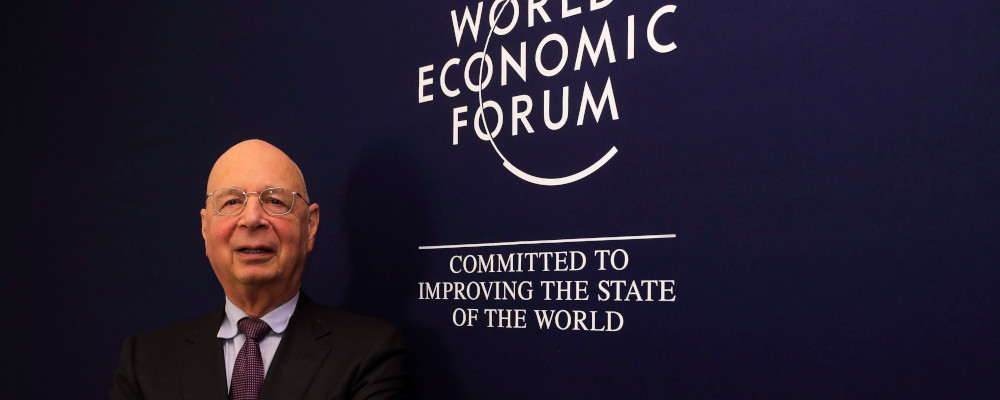On a recent editionWhy did Stephen Harper endorse Pierre Poilievre? The Hub Roundtable breaks it down https://thehub.ca/2022-07-29/why-did-stephen-harper-endorse-pierre-poilievre-the-hub-roundtable-breaks-it-down/ of our Friday Roundtable podcast, I unwittingly kicked over a proverbial hornet’s nest. It wasn’t because I was railing (as per usual)The leaders won’t be talking about this issue. It may be the most important one https://thehub.ca/2021-08-16/rudyard-griffiths-the-leaders-wont-be-talking-about-this-issue-it-may-be-the-most-important-one/ against central bank’s easy money policies. And, no it wasn’t my consistent advocacyTime to face the unpleasant truth: Reforming our health system is an urgent necessity https://thehub.ca/2022-02-01/reforming-our-health-system-is-an-urgent-necessity/ for some kind of sensible private health care delivery that ticked off listeners. Rather, what got our email humming along with my Twitter feed were critical comments I made about how conspiracy theories related to the World Economic Forum had inveigled their way into the Conservative Party leadership race and the campaign of frontrunner Pierre Poilievre.
It seems for the WEF obsessed (who knew there were so many!) I had the temerity to state the obvious: there is a more than a casual association between the surge in WEF-related conspiracy theories and rising antisemitism in Canada. The many DMs and emails I have received over the intervening weeks (most thankfully civilized, others not) are uniformly incredulous. “How could I possibly think this?” “Don’t I know that Klaus Martin Schwab isn’t Jewish?” “He is a German you idiot!” And many more along the lines of “I’m an antisemite? This is a horrible smear.” Followed by the chilling sentence: “Don’t you know ‘they’ are controlling our government?”
For the outright delusional to the simply uncurious WEF hater, let me explain. Unwittingly or not, you are keeping very bad company when you are publicly espousing your belief that the World Economic Forum is a worldwide conspiracy for global domination. The toxin you are helping inject into the body politic is the antisemitic meme called the “Great Reset”. For the uninitiated, this is the core tenet of the WEF conspiracy whereby global elites, coordinated by Klaus Schwab, the organization’s executive chairman, are using the pandemic as a “false flag” to enact radical social engineerings, such as digital ID cards, forced vaccination, and the abrogation of private property rights. In short, a Gotterdammerung of our basic civil liberties is coming soon to a theatre near you, all courtesy of WEF and its acolytes in governments around the world.
“…a Gotterdammerung of our basic civil liberties is coming shortly to a theatre near you, all courtesy of the World Economic Forum and its acolytes in governments around the world.”
I will leave it to othersThe Great Reset: What is it? https://fullfact.org/online/great-reset-conspiracy-theory/ to explain just how ludicrous it is to assert that the WEF’s actual stated agenda for its post-COVID “Great Reset” recovery agenda is a secret plan for global domination. Or, that Klaus Schwab is not planning for a world without pet cats.The World Economic Forum has not planned for a future without pets or animal charities https://fullfact.org/online/WEF-animal-charities/ Or, that the Forum is increasingly criticized by its own members as ineffectual and out of touch.
No, what is important here and needs to be called out, as the ADL has documented in great detail,‘The Great Reset’ Conspiracy Flourishes Amid Continued Pandemic https://www.adl.org/blog/the-great-reset-conspiracy-flourishes-amid-continued-pandemic are how WEF conspiracy theories abound with antisemitic tropes. Namely that Jewish financiers (queue George Soros and the Rothschilds) control the Forum. That “One World Government” is the latest manifestation of (oh what a coincidence!) of a “worldwide Zionist conspiracy.“ That a “virus,” in this case COVID-19, is the means to enact this evil agenda, playing to the very oldest of tropes that Jews are carriers of disease. I could go on and on with parallels between key features of the WEF conspiracy and longstanding antisemitic beliefs but do not take my word for it. Instead, spend a few minutes on Google searching for the terms “WEF” and “Great Reset.” Before you know it you will be in some very dark places on the Web where antisemitism abounds unbound.
I can hear the protestations of WEF conspiracists. “I don’t believe these things.” “My beef is with WEF controlling our government.” “I am against antisemitism too!” Yes, you are entitled to your delusions. It’s a free country. But do not be deluded about the company you are keeping. Or the dark memes you are unintentionally feeding. And how other people will hear a dangerous dog whistle when you are enthusiastically declaiming on Twitter, Facebook, and YouTube about Klaus Schwab and his sinister plans for “One World Government.” What is insidious about antisemitism is how it creeps into societies, slowly at first, then suddenly it bursts into the open as a surge of violence and hate. We know this movie. It contains some of humanity’s darkest moments. WEF haters, I implore you, don’t be enablers of the rise of antisemitism today.
“I am not accusing Poilievre of being an antisemite. Let me make that clear. His record of support for the State of Israel and the Jewish community speaks for itself.”
Two final observations on the sorry affair that is the growing WEF delusion in Canada today, one political, the other cultural.
To state the obvious, the rise of WEF and “Great Reset” as powerful, associated conspiracy theories are concentrated in the conservative moment. More recently, and more worryingly, the WEF conspiracy has penetrated Canadian conservatism’s blood-brain barrier, migrating from the fringes into the political mainstream. I document the moment of febrile infection to Pierre Poilievre’s bizarre statement during the current Conservative Party leadership race that as Prime Minister of Canada he would ban federal ministers from attending the World Economic Forum.
I am not accusing Poilievre of being an antisemite. Let me make that clear. His record of support for the State of Israel and the Jewish community speaks for itself. What he risks being guilty of is giving unwitting succor to conspiracy theories that are closely associated with undeniably antisemitic tropes and memes. This is unacceptable for a would-be leader of one of Canada’s mainstream political parties. And, for any presumptive premier of Alberta too.
Is it possible that, like many of the Klaus Schwab obsessed, Poilievre simply hasn’t paid much attention to the darker elements of anti-WEF moment? I am happy to give him the benefit of the doubt. But to be a worthy leader of the Conservative Party of Canada he must call out the lunacy of WEF conspiracists in his own party and walk back his ridiculous ban on cabinet ministers attending the Forum. Absent such moves, it is hard for a thinking person not to impute to him the worst of political sins or dog whistling. Again, this is unacceptable and should be a disqualification for leadership.
“The rise of ‘conspiracism’ as its own potent ideology is a consequence of the failure of public policy and elites to foster a society of broad-based optimism and opportunity.”
Lest readers think I am an anti-anti-WEF fanatic, let me end on a note of sympathy for those caught up in conspiracy theories like WEF. What some WEF haters are experiencing isn’t nice. There is something wrong with our society. Their feelings of powerlessness and a lack of agency are real. But, Klaus Schwab, George Soros, nor the Rothschilds are not to blame. Instead, it’s our politics and society, and dare I even say our elites. We have subjected a large segment of Canadians, for a generation, to stagnating living conditions through economic mismanagement and conspicuous rent-seeking. We have eviscerated local communities with relentless globalization, urbanization, and consumerism. We have told ourselves that the totality of our history is racist and exclusionary. And we subjected our citizenry to the ruthless amplification of disinformation by unregulated, predatory algorithms. The rise of “conspiracism” as its own potent ideology is a consequence of the failure of public policy and elites to foster a society of broad-based optimism and opportunity.
There are no easy fixes here. No convenient scapegoats. Antisemitism must be confronted in all its guises. Not doing so is to invite a moral stain that will smother all of us. Same for ignoring the real anxieties of many of our fellow citizens who are experiencing the world today as if it is spinning out of control. While the theories conspiracists are peddling are beyond fringe, their existence is a loud warning that everything is far from alright for many Canadians. Complacency isn’t an answer here either.
Recommended for You

Australia’s terror attack: How should we respond to abject evil?

Are Canadian immigration levels too high? Jason Kenney and Andrew Coyne debate

A warning written in blood

‘This has to be a wake-up call’: How Canada and the West must respond to Australia’s deadly antisemitic attack




